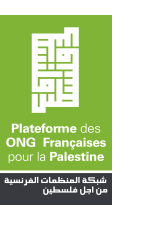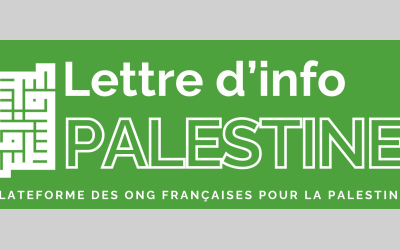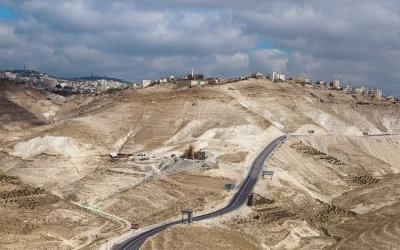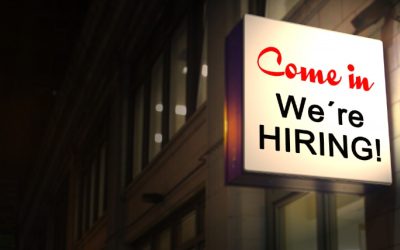

A delegation of European Parliament members managed to enter Gaza for 2 hours
On Sunday, 8 MEPs from different groups became the first observers to gain access to the Gaza Strip as observers since Israel launched its campaign 17 days ago. They travelled to Egypt and crossed at Rafah. The following account is taken from a blog written by Chris Davies (ALDE).
We travelled up from Cairo through the Sinai in a coach with an Egyptian police escort. Assembling our team of 8 MEPs took a long time at the airport, and what with confusion about where to stay we didn’t put our heads down till past 3am. More confusion in the morning delayed us getting to the Rafah crossing till just before noon. It didn’t seem to matter ; UNRWA had already called to tell us that the Israeli Defence Ministry was not prepared to let their vehicles meet us. A series of telephone calls had produced conflicting stories but the result was the same : ¨No way are you getting in !¨ This fact-finding trip was going to prove nothing more than a gesture.
¨Get into the minibus, GET IN, GET IN !¨ For unknown reasons a window of opportunity had opened. It was 2.20pm and the ’ceasefire’ lasted till 4pm. We passed through the gate to be met by UNWRA’s director of operations John Ging and three bullet proof (really heavy doors) UN Range Rovers. We transferred and drove into the Palestinian town of Rafah (yes, there are two Rafahs), passing a few bombed buildings on the way, probably ones that had cloaked entrance/exit routes to tunnels across the border. In so doing we may have become the first ’observers’ to cross since the assault began 16 days ago.
It’s a funny thing about a bombed building but I always find that, even though they may have been destroyed by a devastating explosion just yesterday, they look as though the incident took place a year or two ago. And maybe, their appearance suggests, it wasn’t a bombing at all but a demolition job by a firm that went into liquidation just after the work commenced. So long as it is not your own building it somehow diminishes the impact.
The journey was short, just a mile or so. There were lots of people on the streets taking advantage of the ceasefire - ¨The streets are deserted except during these periods,¨ explained our UN security guide - but very few vehicles except the occasional cart pulled by a donkey. We turned into the compound of a UN distribution centre. There was time only to look at the devastation of a former police station opposite, and exchange a few words both about the damage to the UN buildings and the distribution operation with John Ging. I asked him about the Israeli defence for civilian casualties being that Hamas uses human shields to cover its operations. His response was dismissive, and when you looked around at the context of a war in the midst of a living community you could see why.
Suddenly there was a huge bang ; the ground shook and so did my stomach. An Israeli blast during ceasefire. It may have been 6-700 metres away but it felt bloody close ! What must this be like for people who really are close ? Allegedly, we learnt later, it was a response to Hamas rocket attacks.
Back in the vehicles we drive a short distance through back streets to a primary school being used as a shelter. ¨The UN has 71 ’shelters’ across Gaza and we have 30,000 people in them whose homes have been bombed or are at risk,” said John. ¨Some of them, just like this, have been hit nonetheless as you will know.¨ It seemed to me that most of the residents were children, and they were hugely enthusiastic to see us. (At least our presence changed the routine a bit).
Another Israeli blast, and again the ground and my stomach shook. Smoke arose between buildings a few hundred metres away. The kids weren’t phased, ¨Too far off¨ I imagine they were thinking.
Pushing through their numbers, shaking lots of hands and smiling hard, (some of our team shed tears as soon as they had privacy), we met in a side room to hear about the distribution arrangements (¨We need more than just food and medicines, it’s all the essentials of family life, like bedding for displaced families, and nappies¨). I asked John about Israeli claims that Hamas were using civilians in places like this as human shields. « Look around you », he said. « Do you think the mothers here would allow fighters to put their kids’ lives at risk ? »
It was 3.15pm. ¨We need you to go NOW,¨ said John Ging. ¨I am so pleased you have been here to see this for yourselves. Just take back the message that the people here need protection. The violence has got to stop. The UN has got to back up its words about a ceasefire with some real action and pressure.
We walked out of the building into the throng of excited kids, mostly 7-11 year olds. I was struck by how many made ’V for Victory’ gestures with their fingers. Do the Israelis really believe that bombing urban communities and terrorising their populations is going to bring them security ? What about the next generation that even now starts to merge with the existing one ?
The streets were still busy but very few people had anything in their hands. Not much to buy I suppose.
I asked the UN driver about casualties at the hospitals. ¨We’re approaching 900 dead and more than 3,000 injured,¨ he said. ¨From what we hear it is mainly ordinary people. Amongst the numbers there do not seem to be that many young fit men of fighting age that would fit the ’combatant’ category.¨
We get back to the crossing and leave the UN vehicles. Back in the Rafah compound it’s interview time, and we watch also as a succession of Israeli F16s cross the sky dropping white flares of some kind. Donkeys pulling carts in the streets and 21st century killing machines in the air.
Then the explosions start. One of them close enough so that journalists and ourselves start to move quickly away.
Twenty or 30 minutes later the crossing complex starts to get really busy. Ambulance after ambulance arrives from Gaza, and their occupants are transferred to Egyptian ambulances.
Our coach sets off in the direction of Cairo just before sunset. Ambulances race past on the road south.
Campagne en cours
Dernières publications
 18 avril 2024
Hôpital Al-Shifa, ventes militaires françaises et demande de cessez-le-feu
Analyses politiques et géopolitiques
Colonisation
Eau
Bande de Gaza
Développement
UE/Israël
Politique française
Jérusalem
Autorité palestinienne
Nations unies
Torture et mauvais traitements
Agriculture
Etat de Palestine
Droit international
Solidarité internationale
Enfance/jeunesse
Histoire/analyse politique
Santé
Prisonniers palestiniens
Vallée du Jourdain
Destructions
Aide internationale
La question palestinienne en France
Société (Palestine/Israël)
Occupation/annexion
Hamas
Société civile
Crime de guerre
UE/Palestine
Liberté d’expression
Armement
Violence des colons
Climat/environnement
Apartheid
Guerre
18 avril 2024
Hôpital Al-Shifa, ventes militaires françaises et demande de cessez-le-feu
Analyses politiques et géopolitiques
Colonisation
Eau
Bande de Gaza
Développement
UE/Israël
Politique française
Jérusalem
Autorité palestinienne
Nations unies
Torture et mauvais traitements
Agriculture
Etat de Palestine
Droit international
Solidarité internationale
Enfance/jeunesse
Histoire/analyse politique
Santé
Prisonniers palestiniens
Vallée du Jourdain
Destructions
Aide internationale
La question palestinienne en France
Société (Palestine/Israël)
Occupation/annexion
Hamas
Société civile
Crime de guerre
UE/Palestine
Liberté d’expression
Armement
Violence des colons
Climat/environnement
Apartheid
Guerre
 11 avril 2024
« La France doit interdire le commerce avec les colonies israéliennes »
Produits des colonies
Droit international
Colonisation
11 avril 2024
« La France doit interdire le commerce avec les colonies israéliennes »
Produits des colonies
Droit international
Colonisation
> Toutes les publications










